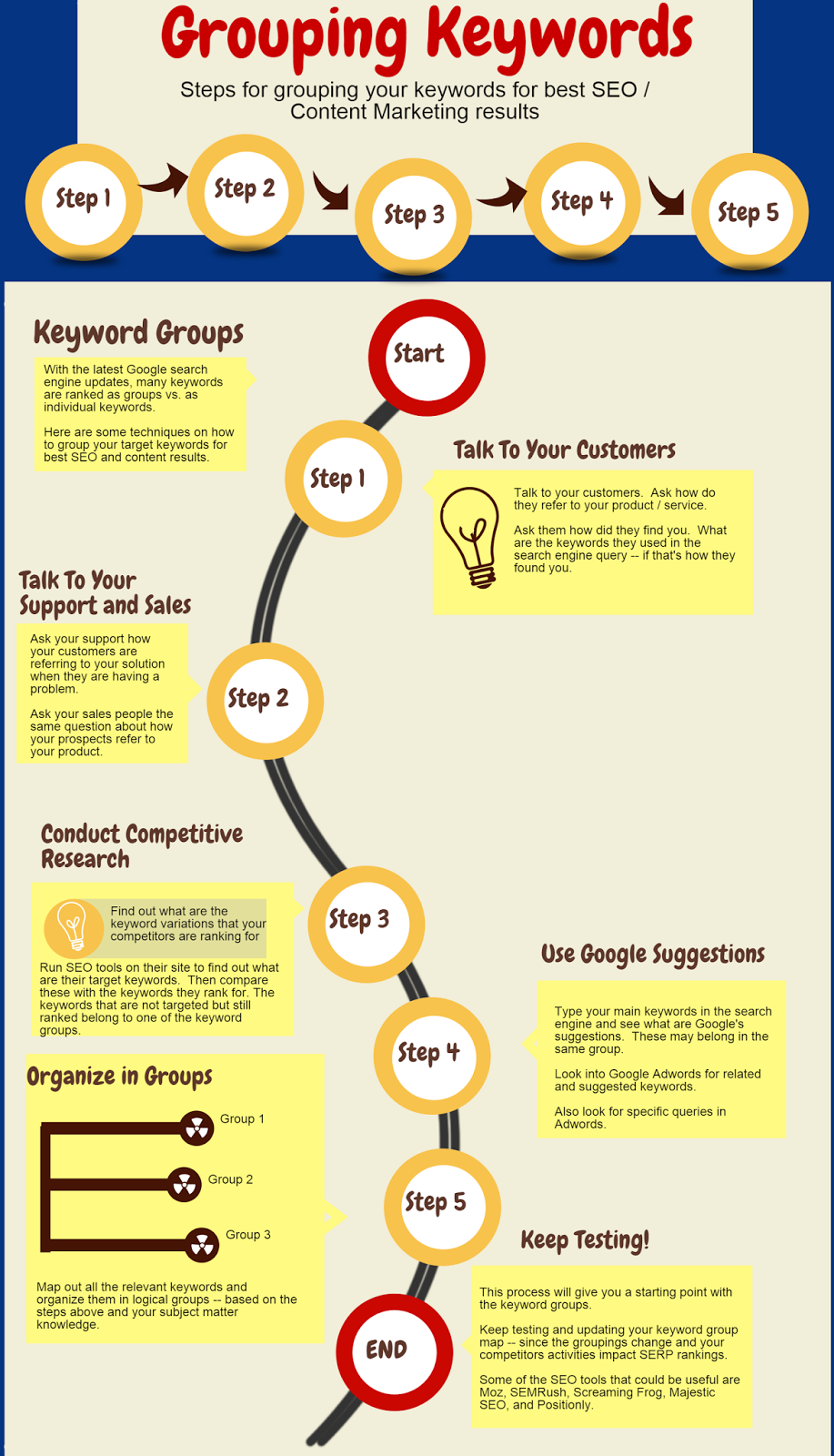 After receiving several email requests to share the best practices on how to group keywords, I decided to write a blog on that subject. It also gave me a chance to play around with a new infographics maker tool called Piktochart.
After receiving several email requests to share the best practices on how to group keywords, I decided to write a blog on that subject. It also gave me a chance to play around with a new infographics maker tool called Piktochart. Summary of Steps from the Infographics:
Step 1: Talk To Your Customers
Talk to your customers. Ask how do they refer to your product / service. Ask them how did they find you. What are the keywords they used in the search engine query -- if that's how they found you.
Step 2: Talk To Your Support and Sales
Ask your support how your customers are referring to your solution when they are having a problem. Ask your sales people the same question about how your prospects refer to your product.
Step 3: Conduct Competitive Research
Find out what are the keyword variations that your competitors are ranking for. Run SEO tools on their site to find out what are their target keywords. Then compare these with the keywords they rank for. The keywords that are not targeted but still ranked belong to one of the keyword groups.
Step 4: Use Google's Suggestions
Type your main keywords in the search engine and see what are Google's suggestions. These may belong in the same group. Look into Google Adwords for related and suggested keywords. Also look for specific queries in Adwords.
Step 5: Organize in Groups
Map out all the relevant keywords and organize them in logical groups -- based on the steps above and your subject matter knowledge.
Keep Testing!
This process will give you a starting point with the keyword groups. Keep testing and updating your keyword group map -- since the groupings change and your competitors activities impact SERP rankings.
Some of the SEO tools that could be useful are Moz, SEMRush, Screaming Frog, Majestic SEO, and Positionly.
Hmm... you're basically talking about LSI here, right? That's been around for a long time... it's not really anything new. But maybe I'm just misunderstanding what "keyword grouping" is.
ReplyDeleteMai | Edmonton SEO
The news was that Google started ranking keywords related to other similar keywords vs. specific standalone keywords. So, you may have not been optimizing for a keyword X, but since you are ranking for a keyword Y that is related to keyword X, both keywords X and Y are now being ranked by Google.
ReplyDeleteYou guys may have heard me mention keywords before when I'm talking about SEO or content strategy. They're really important when it comes to optimization in social media. However, it can be challenging to decide how to decide which keywords should go with which content post when creating content for your business, brand or blog.
ReplyDelete